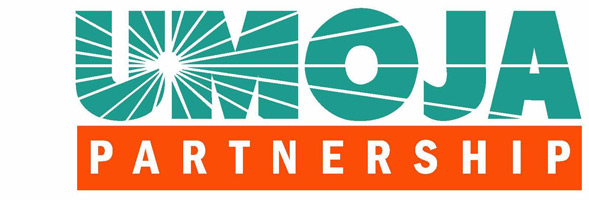Lydia Malone, Duke Divinity School student and 2011 Umoja Project intern
I woke up about seven times this morning, each time trying desperately to ignore the crowing of the roosters outside of my window. Determined to be heard, these feathered alarm clocks made a noise that pierced through cement walls and thick windows, deep sleep and even ear-plugs. As I reflect upon this morning’s wake-up call I am reminded of the personal growth and theological enlightenment I have attained during my short stay in Kenya. Some of my experiences here have served as alarm clocks waking me from a slumber of ignorance and arrogance that undergirded a comfortable Christianity and a passive posture of service to others in need. Before this experience, I believed that I understood the importance of helping others, so I offered assistance when people requested my aid. But I never sought out persons to help, and rarely initiated service to others that I knew had a need. My ignorance kept me sleep-walking, as it were, through the halls of my school, through the streets of my neighborhood, and even through the aisles of my church. My arrogance kept me proud of the few moments of service in which I actually opened my eyes.
I came to Kenya with eyes wide shut, but was jarred out of my slumber after only a few days by alarms that would not quit. They resounded when I saw a six-week-old infant starving, and heard a widow cry for rain because it was her only source of water. The sounds grew louder with the stories of girls denied education so their parents could reap dowry, and with the children who walk an hour barefoot up a stony mountain to go to school. Even during times of joy I could hear the ringing in the distance. I could not go back to sleep, but the pain I felt from waking up was so intense that all I wanted to do was hide under the covers of a dreary consciousness. I tried harder to shut my eyes and stop my ears, but found it impossible to revert to my previous state of slumber. I had to wake up. My eyes began adjusting to the light illuminating my own desperation, and they began searching for a gospel powerful enough to save the soul and nourish the body. My ears strained to hear the sound of self-surrender, the silent but profound confession of my own finitude and God’s boundlessness. I was (and am) being challenged to practice a gospel greater than myself; one centered on God’s mission rather than a personal agenda. To practice anything less is to be unfaithful. So I surrendered.
This submission caused me to wrestle with difficult questions concerning service to others. If compassion means to suffer with, how does living in privilege affect ministry? If I seek to serve without resources, how great of an impact can I truly have? I am still working through these questions, but Paul’s statement in Philippians 4:12 has provided a foundation on which to build. The apostle says, “I know both how to be abased, and I know how to abound: every where and in all things I am instructed both to be full and hungry, both to abound and suffer need.” My experience here is teaching me the importance of coupling work with faith, and that part of such work is to maintain a consciousness of those who suffer. This is one way that I must live out the gospel.
As I close I remember the words that my mother used to sing to wake my sister and me, “Rise and shine and give God the glory!” Her musical instruction captures the objective of my awakening in Kenya. As I rise from my slumber, shine through the light of God’s truth, and give God glory by constantly being mindful of his people, I learn to celebrate the joy of greeting a new day… Even if it is ushered in by a rooster.
